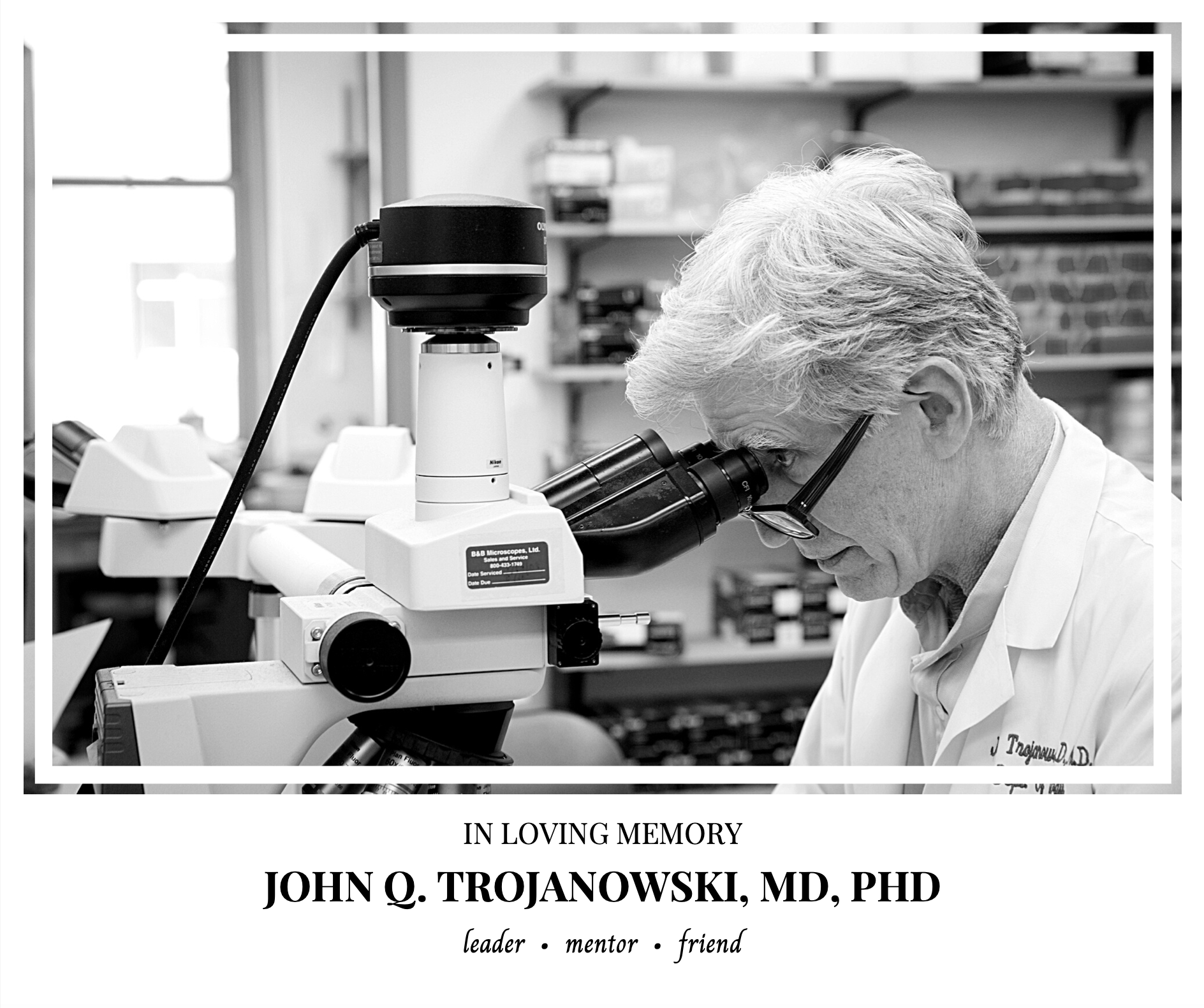Home
Mission
The mission of the Center for Neurodegenerative Disease Research (CNDR) is to promote and conduct multidisciplinary clinical and basic research to increase the understanding of the causes and mechanisms leading to brain dysfunction and degeneration in neurodegenerative diseases such as Alzheimer’s disease (AD), Parkinson’s disease (PD), Lewy body dementia (LBD), Frontotemporal degeneration (FTD), Amyotrophic lateral sclerosis (ALS), Primary lateral sclerosis (PLS), Motor neuron disease (MND), and related disorders that occur increasingly with advancing age. Implicit in the mission of the CNDR are two overarching goals: 1.) Find better ways to cure and treat these disorders, 2. Provide training to the next generation of scientists.
“My goal for CNDR is not only to collaborate with researchers at Penn and from institutions across the globe with the mutual goal of finding better ways to diagnose and treat neurodegenerative diseases, but also to inspire and encourage the next generation of scientists on the importance of investigating these disorders that occur more frequently with advancing age.” – Virginia M.-Y. Lee, PhD, Director, CNDR

John Q. Trojanowski, MD, PhD | 1946 - 2022

In loving memory of John Q. Trojanowski, MD, PhD
Latest Research
-
Glycine-to-aspartic acid mutation at codon 51 in <em>Snca</em> disrupts the synaptic localisation of α-synuclein and enhances its propensity for synucleinopathy
Friday, June 27, 2025
Point mutations in the SNCA gene, which encodes α-synuclein (αSyn), are a known cause of familial Parkinson's disease. The glycine-51-aspartic acid (G51D) mutation causes early-onset neurodegeneration with complex, wide-spread αSyn pathology. We used CRISPR/Cas9 gene editing to introduce the G51D point mutation into the endogenous rat Snca gene. Our goal was to investigate whether the G51D αSyn mutation gives rise to synucleinopathy and neurodegenerative phenotypes in rats. Co-localisation...
-
Longitudinal Assessment of 4-Year HFMSE Changes in SMA II and III Patients Treated With Nusinersen
Friday, June 27, 2025
CONCLUSION: Our results confirm that, given a follow up of 4 years, there is a persistent impact of nusinersen on clinical progression that is better observed in younger patients with higher HFMSE scores at baseline, especially during the first 2 years of treatment.
-
Metachromatic Leukodystrophy: New Therapy Advancements and Emerging Research Directions
Friday, June 27, 2025
Metachromatic leukodystrophy (MLD) is a rare autosomal recessive lysosomal storage disorder caused by disease-causing variants in the gene coding for arylsulfatase A, leading to deficient enzyme activity and subsequent accumulation of sulfatides. MLD is characterized by demyelination and neurodegeneration of the central and peripheral nervous system, manifesting as progressive motor and cognitive defects in affected individuals. This review provides a comprehensive overview of the significant...


